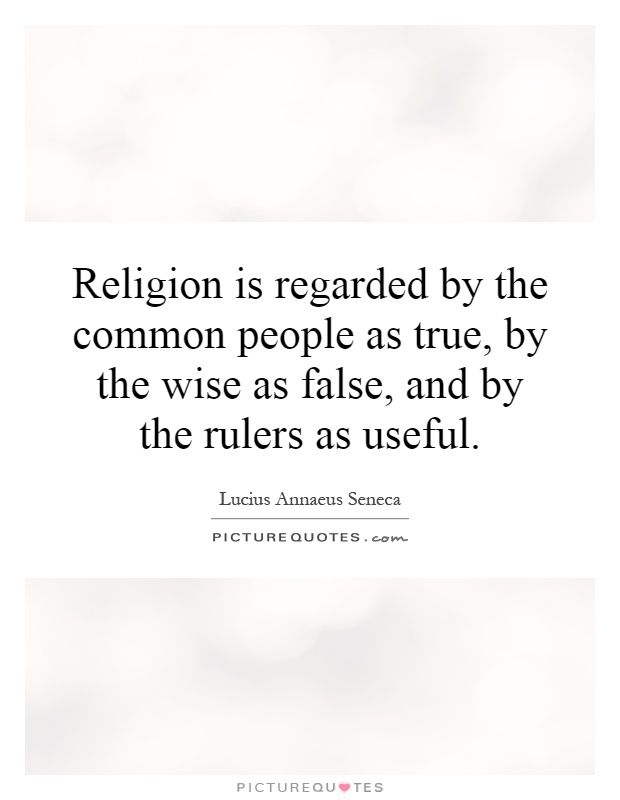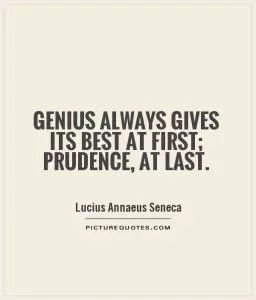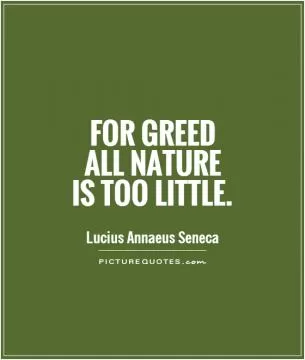Religion is regarded by the common people as true, by the wise as false, and by the rulers as useful

Religion is regarded by the common people as true, by the wise as false, and by the rulers as useful
Lucius Annaeus Seneca, a Roman philosopher and statesman, is often quoted as saying, “Religion is regarded by the common people as true, by the wise as false, and by the rulers as useful.” This statement reflects Seneca’s skepticism towards organized religion and the role it plays in society.For the common people, religion serves as a source of comfort, guidance, and moral values. It provides a sense of community and belonging, as well as a framework for understanding the world and their place in it. Many people find solace in the rituals, traditions, and teachings of their faith, and derive strength from their beliefs in times of hardship and uncertainty. Religion can also offer a sense of purpose and meaning, helping individuals navigate the complexities of life and death.
However, Seneca suggests that the wise see through the illusions of religion and recognize it as false. The wise are those who question authority, challenge dogma, and seek truth through reason and critical thinking. They understand that religion is a human construct, shaped by culture, history, and politics. The wise recognize the contradictions, inconsistencies, and absurdities within religious texts and doctrines, and are not swayed by blind faith or superstition. Instead, they value knowledge, wisdom, and intellectual integrity, and strive to live a life guided by reason and virtue.
On the other hand, rulers view religion as a tool for maintaining social order, political stability, and control over the masses. They use religion to legitimize their power, justify their actions, and manipulate public opinion. Rulers often exploit religious beliefs and institutions to advance their own agendas, suppress dissent, and enforce conformity. They understand the power of religion to inspire loyalty, obedience, and submission, and exploit it for their own benefit.












 Friendship Quotes
Friendship Quotes Love Quotes
Love Quotes Life Quotes
Life Quotes Funny Quotes
Funny Quotes Motivational Quotes
Motivational Quotes Inspirational Quotes
Inspirational Quotes